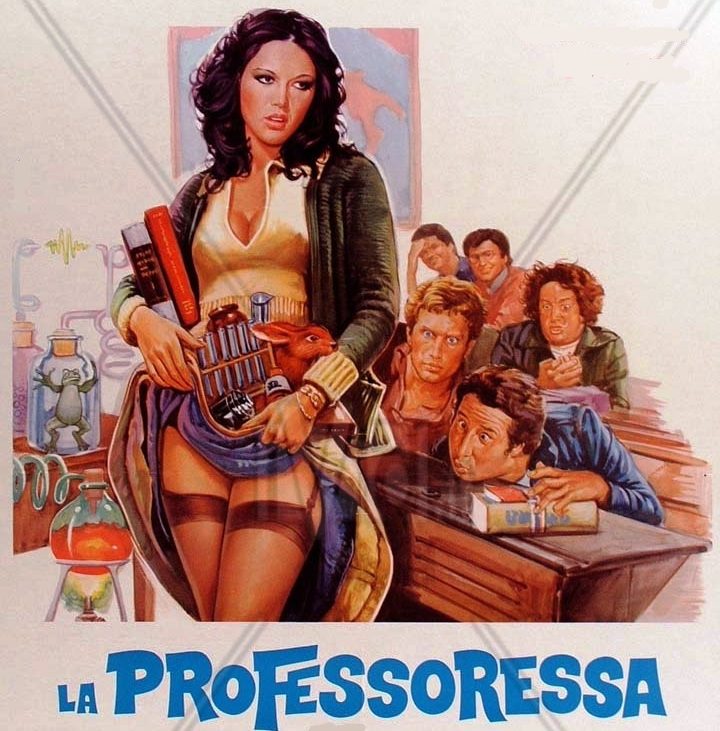Well, after all the little jokes that I’ve made about teaching English to Italians (you can read here if you need to be reminded: Teaching English to Italians), the rebuttal has arrived at last. Italian for English speakers: turnabout is fair play, after all. I take no credit (or blame) for the content of this post. Any disparaging remarks from my Anlgo-American friends will be appropriately redirected to the source.
It’s only after Rick asked me again and again that I accepted to share some of the greatest challenges that I encounter when teaching the Italian language to Anglophones. Not that I wasn’t tempted. I simply thought I couldn’t find the time to write an article that would likely be as long as an epic poem. But eventually I decided to avenge all the Italians who’ve been losing sleep over inexplicable phenomena like the “h” sound– that actually has no sound in words like heir and honor. Perhaps some of my compatriots have even sought out a psychologist in their attempt to repress their anxiety over producing the “th” sound by putting their tongue between their teeth. You see, this little gesture, basically biting your own tongue, makes them feel stupid. “Why would I want to look like an idiot?” they go whining to their shrinks.
That said, let me make a disclaimer: my post might sound a bit too harsh to an American audience. Please be assured that it is only intended for fun. We Italians tend to overstate, we’re culturally not half as pressured as you are with that spotless political correctness, and ultimately, well, we don’t really like to bite our tongue—neither literally, nor figuratively.
So, let’s have a look to some of the preliminary difficulties that English speakers meet along their tortuous path to learning Italian. One above all: grammar. Sure, I am a language teacher and therefore very concerned about grammar. Already in high school I had earned the nickname of “Brainy Smurf,” that will probably give you a hint about how much I am concerned about grammar. I will also admit that Italian grammar is undoubtedly much more complex than the English.
However, let me tell you frankly: lack of grammar education strikes me a major fault in the American school system. I have given private – and very expensive – lessons to some big fish in some important companies, receiving some salaries with some zeros in the net box, who could not detect the subject in a sentence, no matter their level of Masters or MBA. Forget about direct or indirect objects. So my very first challenge with 80% (or more) of my American students is that I first have to teach them their own grammar. Get me right. For sure they can still speak English a great deal better than me; but when it comes about learning another language, well, you must know your whereabouts. So if you want to learn Italian, go to your folks’ basement, open up that childhood memory box, find your elementary grammar book, and brush it off…now!
As per initial obstacles, something I have to always fight against is this absurd, misleading notion that “Italian and Spanish are so close that they’re almost the same.” It drives me insane when I say that I’m Italian and somebody replies “Italia! [read: ɜtalia] iHola! ¿Como estas?”
Insane.
Later, when some of these individuals attempt to speak Italian, no doubt they’ll go pick a rabbit – a Spanish rabbit – out of their hat any time their vocabulary lets them down. And makes me run for the hills.
We’re all Italian, buddy–including me!
Last but not least: “I am Italian, too!” They don’t fool me anymore. They only remind me of that funny episode of Family Guy whose best quote is “Peter, you can’t speak Italian just because you have mustache.”
[responsive_video type=’youtube’ hide_related=’1′ hide_logo=’1′ hide_controls=’0′ hide_title=’0′ hide_fullscreen=’1′ autoplay=’0′]https://www.youtube.com/watch?v=t30JzS0LHpk[/responsive_video]
I understand and have the maximum respect for the Italian pride that hasn’t been lost in the generations of descendants of immigrants. But the sad truth is, the language has certainly been lost. For good. And in any case, it was probably never even Italian at all. It’s mainly a corrupted form of the Neapolitan dialect. Capish, salud, goombah, are not Italian words. And, hey, even “’O Sole Mio” is Neapolitan.
One thing that makes me feel no sympathy for my English speaking students is indeed the vowels pronunciation. Think about this simple fact. Both languages count 5 vowels (OK, English 5 and a ½, including the “y”). However, Italian counts 5 sounds for vowels – yes, five, that makes sense, doesn’t it? Whereas English counts about 27 different sounds. And I have to say “about” because even the most authoritative sources do not all agree on the exact number. So when I teach a student that “a” sounds always “A” like in the word “alpha”, “e” sounds always “E” like in the word “echo” (and it’s not by chance that the NATO and the IATA have picked so many words derived from Greek), and so on, I would expect that student to feel relieved.
But no. So many of them insist with a show off of unsolicited creativity that only causes – often hilarious – misunderstandings and spontaneous – as well as embarrassing – puns. I had a student who could not let go of his wide range of vowel sounds. For example he did this curious thing with the word “restaurant”. One ristorante, many ristoranti, in Italian. Since he could not help pronouncing the “e” of the singular form as you would in English in the word “email”, nor he could get over the fact that our “i” sounds like “India” always, and in fact never as “igloo”, he basically always inverted the plural and singular all the times.
The range of pronunciation challenges is certainly long and diverse, but I can probably cut it short because basically you just have to read in opposite key everything that Rick wrote about Italians speaking English. But let me just throw a little salt on the wounds of a couple of my favorites: letter “t” sounding “tch”, which for example transforms the world “tutto” (everything) in “ciuccio” (pacifier); the lack of ability to make a double consonant sound, which in fact leads to spelling mistakes that at this point get unnoticed, like the famous “mama mia.” No, my friends…it’s “maMMa mia!” However, this does not produce major misunderstandings like for example penne versus pene. We appreciate that you are a fan of our penne (a shape of pasta), but we really get puzzled if you go around saying without at least a little discretion that you really like pene. Because, well, that means penis.
So I’ll leave you on that final fact for now. I had promised I would present my article to Rick today and I have. But it looks like I’ll need a second episode. Told you this wasn’t going to be easy.




Hi, thank you for you post. I have encountered the same problems when teaching Italian to English and American learners, and yes, lack of grammar knowledge is not the best thing when you are trying to explain a rule!
It’s embarrassing, but true. We don’t know our own grammar so what hope do we have for learning Italian grammar? Thanks for you comment, ciao!
So true… I can confirm it was very “funny” to teach italian vowels to my students. 🙂
Ciao Fabrizio! Yes, I know, we Americans should be able to keep just 5 vowel sounds straight, but for some reason we feel compelled to destroy them all! Thanks for your comment, my friend!
I’d say that’s probably a fair start. Can’t wait for episode 2!
Watch out, Mike, she’s just getting warmed up!
Hahaha, that was fun to read! I wouldnt want you to be’ my teacher, too much for my gentle and easily hurt soul:)
But, i completely agre e when people think if you speak italian its easy for you just switch to’ Spanish. In fact when i was in Central America i was trying to replace my very poor spanish vocabulary with Italian words, no one could understand me.
It’s so true, Yana! When I was in Spain this summer, I was surprised how much Spanish I could understand. BUT, when I tried to actually SPEAK a Spanish sentence, only Italian words came out! ha, ha!